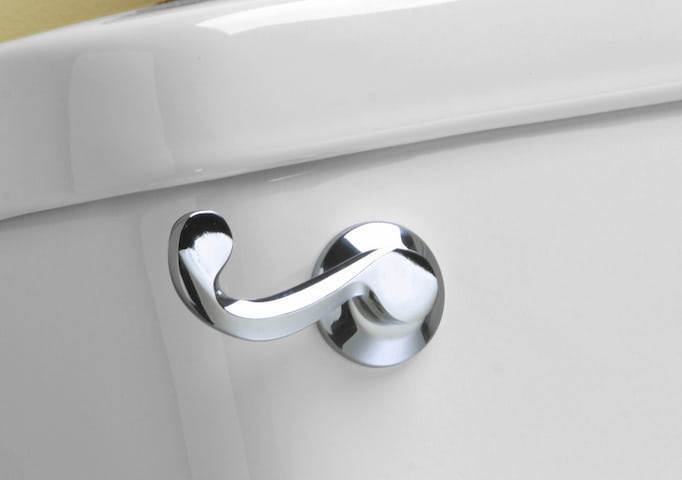
Treating and Managing Internal Hemorrhoids
Do you experience pain or discomfort in the rectal area? Are these sensations coupled with itching, bleeding, and inflammation? If so, you may be suffering from internal hemorrhoids. It can often be embarrassing to discuss symptoms of this condition with a doctor or even family members, but it is important to understand that treatment options are available for those afflicted by this painful problem. In order to help combat the distress caused by internal hemorrhoids, it is vital to recognize the factors associated with them as well as know how to properly treat and manage them.
What are Internal Hemorrhoids and the Symptoms to Look Out For
Internal hemorrhoids are a common ailment that affects many these days. These are swollen veins in the lower rectum and anus area, which can cause discomfort and bleeding. Symptoms can include itching, pain, and swelling, and sometimes, they may not show any symptoms. Hemorrhoids can be internal or external and can be identified through various tests and procedures. Depending on the severity of the condition, there are various treatment options available, ranging from lifestyle changes to surgical procedures. However, it's essential to identify the symptoms and seek appropriate medical help to prevent the condition from getting worse. Early diagnosis is the key to effective treatment.
The Benefits of Natural Treatments
When it comes to treating internal hemorrhoids, it's important to consider all of your options. While traditional medical treatments can certainly be effective, many people are turning to natural remedies as a way to alleviate their symptoms. Not only are these treatments often gentler on the body, but they can also provide a variety of additional benefits. For example, some natural treatments may help improve digestion, boost immune function, and reduce inflammation throughout the body. Additionally, many people find that these remedies are cheaper and easier to access than medical treatments. Some popular natural treatments for internal hemorrhoids include witch hazel, aloe vera, and sitz baths. Of course, it's essential to speak with a medical professional before starting any new treatment regimen. However, if you're interested in exploring natural options to alleviate your symptoms, there's plenty of information available to guide you.
Dietary Tips for Managing Internal Hemorrhoids
Dealing with internal hemorrhoids can be uncomfortable and even painful at times. While treatment options are available, managing your diet can greatly reduce symptoms. Incorporating plenty of fiber-rich foods like fruits, vegetables, and whole grains can help soften stool and make bowel movements easier. Avoiding spicy and greasy foods can also help alleviate discomfort. Additionally, staying hydrated and limiting alcohol and caffeine intake can also aid in managing symptoms. By making these simple dietary changes, you can proactively manage your internal hemorrhoids and improve your overall quality of life.
Topical Remedies to Relieve Discomfort
Internal hemorrhoids can be a source of constant discomfort for anyone who suffers from them. The symptoms like itching, pain, and bleeding may make it hard to focus on anything else but relieving the discomfort. Thankfully, there are topical remedies that can provide relief. Witch hazel and aloe vera have both been known to soothe hemorrhoids due to their anti-inflammatory properties. Applying a warm compress or sitting in a warm bath for 10-15 minutes can also provide relief. Additionally, over-the-counter creams, ointments, and suppositories can help to alleviate discomfort and reduce swelling. It's important to remember that while these remedies may provide temporary relief, it's crucial to speak with a healthcare professional to determine the best course of treatment for your long-term internal hemorrhoids.
When to See a Doctor
When it comes to health concerns, it can be difficult to determine when to seek medical attention. One condition that often leaves people wondering if they should see a doctor is internal hemorrhoids. While these swollen veins in the rectal area aren't typically dangerous, they can cause uncomfortable symptoms such as itching, pain, and bleeding. If you've tried over-the-counter remedies without success or your symptoms persist or worsen, it may be time to make an appointment with your healthcare provider. They can help determine the severity of your condition and provide treatment options to alleviate your discomfort and promote healing. Don't suffer in silence - seeking medical advice for internal hemorrhoids can help you get back to feeling like yourself in no time.
Tips for Preventing Future Flare-Ups
Internal hemorrhoids are a common and uncomfortable condition that can lead to painful flare-ups. The good news is that there are steps you can take to prevent future occurrences. One of the most effective ways to prevent flare-ups is to eat a high-fiber diet and stay hydrated to avoid constipation, a common trigger for hemorrhoids. Another tip is to exercise regularly, as physical activity can help regulate bowel movements and improve circulation. Making simple lifestyle changes, such as avoiding sitting on the toilet for extended periods of time and avoiding straining during bowel movements, can also help alleviate symptoms and prevent future flare-ups. There are also numerous treatments and remedies available to alleviate discomfort, including topical creams and sitz baths. By taking proactive measures to prevent and treat hemorrhoids, you can enjoy a healthier, more comfortable life.
